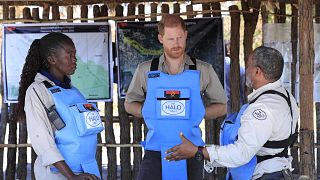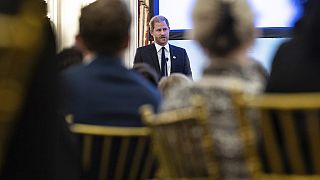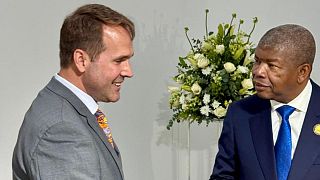Angola
The European Union provided 20 million euros to support the Informal Economy Conversion Program in Angola.
The agreement signed this Monday is part of the plan to respond to the effects of the Covid-19 pandemic on the country's economy.
According to the Angolan Minister of Economy and Planning Sérgio Santos, this funding will be applied to initiatives already registered in the State Budget, which is expected to start in January 2021.
"These are two measures, on the one hand to reduce the bureaucratic burden in the recognition, registration and licensing of economic activities, but on the other hand we have to act in order to get these informal operators to recognize that their self-employment or their entrepreneurial initiative can be better carried out within a framework of stability and formality," Sérgio Santos - Angolan Minister of Economy and Planning said.
The ambassador and head of the European Union delegation in Angola said that this funding represents "above all an act of solidarity and trust. And the fact that it is a budget support is very special.
"The way budget support is done is that instead of giving that budget support to a development partner, you give the money, I say in a very simple way, directly to the state budget. And then it's years, and it's part of our partnership, so it's going to be an ongoing dialogue. Very technical aspects of the indicator and all that we're going to check how the fund is used," Jannette Seppen - Ambassador and Head of the European Union Delegation in Angola said.
Bringing economic agents into the formal sector informally has been one of the greatest challenges for Angola and most African countries. The informal sector represents an average of 60% of the Gross Domestic Product in Africa and appears as a way to solve problems such as unemployment and hunger. Informal activities are mostly carried out by women and fill the need for an extra income, which serves as a livelihood for the whole family.
In Angola, the informal sector moves annually about 43 to 64 billion euros, which represents 72.6% of economic operators outside the legal circuit.













04:07
Angolans celebrate annual carnival
02:00
Blinken praises relationship between US and Angola
01:54
President Joao Lourenço inaugurates Angola's satellite control centre
02:14
Angola's president gives first National Assembly speech since re-election
11:15
Angola dares to look beyond oil [Business Africa]
01:20
Angola's opposition leader rejects provisional presidential poll results